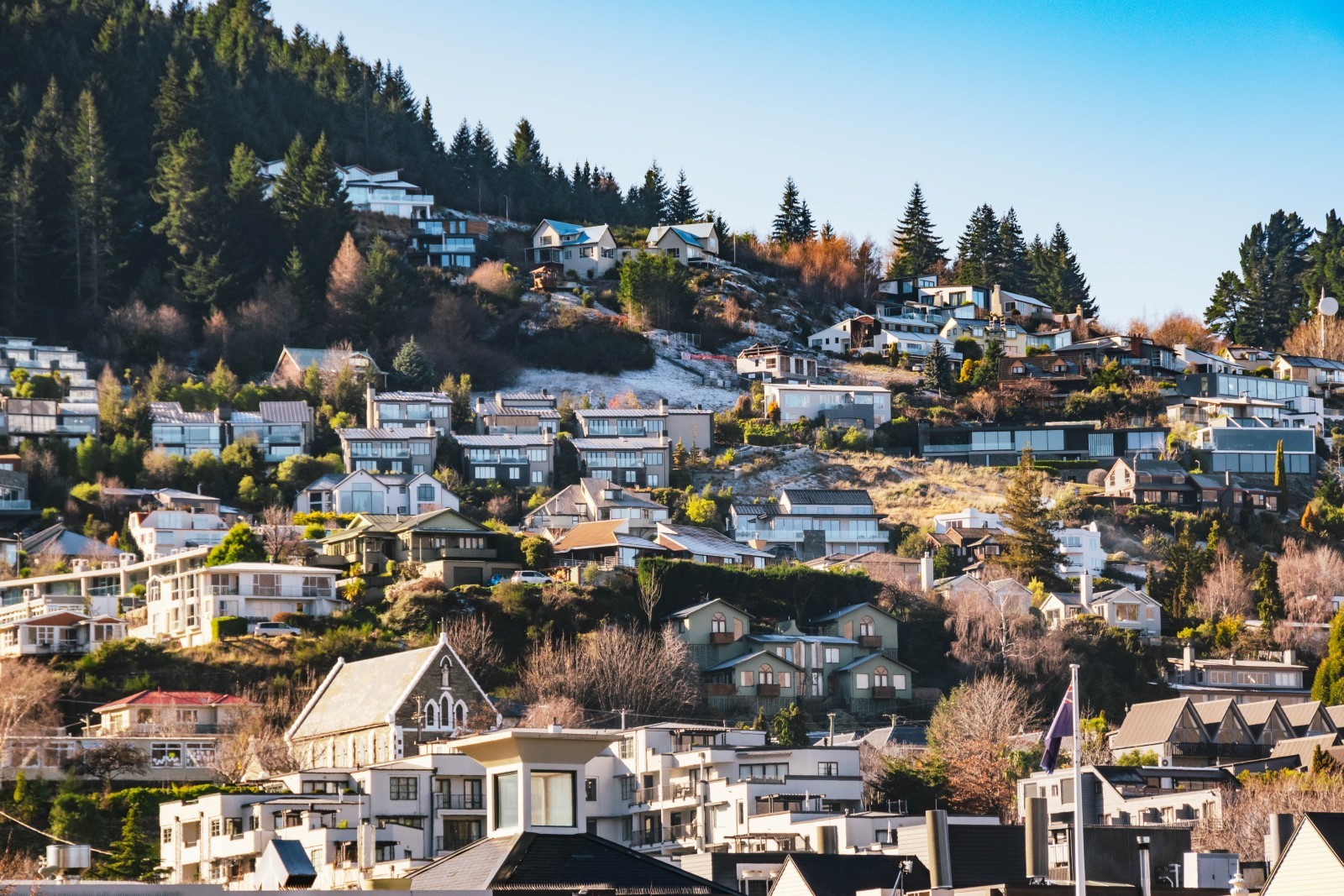Knowing historical mortgage rates in New Zealand will enable you to make a more informed decision when getting a mortgage. Here is everything you need to know

New Zealand’s mortgage rates are constantly rising and falling.
While there are many factors that impact the Reserve Bank of New Zealand’s interest rate and your mortgage rate—such as inflation, the official cash rate, and bank funding costs—it is important to know historical mortgage rates. This knowledge will help you to determine which type of mortgage will work best for you.
In this article we will look at historical mortgage rates in New Zealand to gain a clear picture of how mortgage rates may change by the end of 2023 and beyond. Here is everything you need to know.
What is the historical average mortgage rate in NZ?
During its meeting in May 2023, the Reserve Bank of New Zealand (RBNZ) lifted the official cash rate by 25 basis points (bps) to 5.5%—the highest since December 2008. That increase represented the 12th-consecutive rate hike, which was in line with market consensus. At 6.7%, consumer inflation for the first quarter of 2023 remained too high, as did many measures of inflation expectations.
In the meantime, employment continued to grow, and high net immigration added to demand in the New Zealand economy. The RBNZ’s recent move brought a total of 525 bps increases since October 2021. The RBNZ now predicts that borrowing costs will peak at the current level and cuts will begin in the third quarter of 2024. Due to the expected 0.6% contraction of the GDP in the last quarter of 2022, the RBNZ projects a mild recession for the second and third quarters of 2023.
Historical mortgage rates in NZ: Calculations
An online Historical Rates Analysis Calculator analyzed the average historical monthly mortgage interest rates for the RBNZ average floating rate and the average two-year fixed rate since 1998. By reviewing the historical mortgage rates in New Zealand, we may be able to determine how rates might change in the short-medium term.
Let’s break down the averages as follows:
- RBNZ average floating rate
- RBNZ average two-year fixed rate
Here is a closer look at what the data tells us:
RBNZ average floating rate
Since recording began in June 1998, the average interest rate for the RBNZ average floating rate is 6.90%. The minimum interest rate was 4.50%, which occurred in October 2020. The maximum interest rate observed was 11.20%, which was recorded in June 1998.
RBNZ average two-year fixed rate
Since June 1998, the RBNZ average two-year fixed rate is 6.47%. Between 1998 and 2023, the minimum two-year fixed rate observed was 3.50%, which occurred in November 2020. The maximum average two-year fixed rate was 9.80%, which was recorded in June 1998.
Historical mortgage rates in NZ: A brief history
To get inflation under control, the RBNZ pushed interest rates to extremes in the 1980s at a high cost to many, including farmers hit with a high exchange rate. Since 1992, inflation fell to 2% and has remained at that rate. In response, interest rates decreased; for instance, the average six-month term deposit rate dropped from 12% to about 6%.
Mortgage rates in New Zealand dropped off as well. In times when RBNZ struggled with inflation, however, mortgage rates would still hit peaks near 11%. These peaks happened in 1998 and in 2008. Following the 2008-2009 recession, interest rates settled.
The third structural decline in the average interest rates would follow, starting in 2015 and ending in 2019. This happened after the RBNZ raised its official cash rate by 1% in anticipation of a strong economy and jobs growth spiking inflation. However, inflation ended up being nearly 2% lower than predicted and the Reserve Bank cut its main interest rate by 1%, then 0.75% when inflation again failed to perform as predicted.
What was the highest mortgage rate in NZ history?
Since New Zealand began its current system of collecting data, the highest mortgage rate was 11.20%, which was recorded on June 1, 1998. This figure was for the Reserve Bank of New Zealand’s average floating rate.
What will mortgage rates be in 2023 NZ?
For the remainder of 2023, one-year fixed mortgage interest rates are forecast to reach 7% according to Opes Partners, a property investment company that helps Kiwis. In 2024, those interest rates are expected to drop to 6%, hit 5.5% in 2025, and level off for a long-term average of 4.5%.
Historical mortgage rates: Tips for home buyers in NZ
While it is difficult to predict the future of mortgage rates with any certainty—even with sound knowledge of historical mortgage rates—there are certain strategies potential home buyers in New Zealand should use to navigate the ever-changing market.
Here are two tips for home buyers in New Zealand:
- Fixed rate vs. floating rate
- Shop, shop, shop
Here is a breakdown of each:
1. Fixed vs. floating
As part of the process of getting a mortgage, you will have to decide on either a fixed- or floating-rate mortgage. Let’s look at the key differences between the two:
Fixed-rate mortgage
A fixed-rate mortgage locks in a specific rate for a specific period, usually between six months and five years, although some lenders will allow up to 10 years.
Fixed-rate mortgages offer both you and your lender some financial certainty, since you will know precisely how much your mortgage repayments will be. Another key feature of a fixed-rate mortgage is that the rate remains the same even if the interest rates the bank offer go up or down.
Floating-rate mortgage
A floating-rate mortgage, on the other hand, means the rate can go up or down throughout the life of the loan, depending on the flow of the mortgage. That means you do not get the same certainty in terms of repayment amount.
While less consistency is the downside, the upside of a floating rate is there is more flexibility to pay off your mortgage faster, which means you may save a significant amount on interest.

2. Shop, shop, shop
The banks with the lowest interest rates are constantly changing and, therefore, are not always easy to compare. For instance, one lender may offer a better one-year rate while another offers a better five-year rate. This is why shopping around for the best mortgage rate is so crucial. Remember: you can also negotiate your mortgage rate with a bank.
This is where you will benefit from using a mortgage broker. Since mortgage brokers negotiate with lenders as part of their daily jobs, brokers know the sort of mortgage rates that are on offer by different lenders. In other words, brokers are in the best position to know the best interest rates at any given time.
How high are mortgage rates expected to go in NZ?
Fixed mortgage rates will likely peak just above 7% before the end of 2023 before falling again, said Chris Tennent-Brown, a senior economist with Auckland Savings Bank (ASB), as reported by Stuff. Factors that will impact interest rate spikes include inflation, the official cash rate, and bank funding costs.
“Based on the ASB Economics team’s expectations that the official cash rate will peak above 5%, and our assumptions about bank funding costs and inflation forecasts, we expect most fixed-term mortgage interest rates will peak around 7% or slightly higher over the year ahead,” Tennent-Brown said. “Floating rates could peak around 9%. However, as is often the case, the outlook is far from certain.”
Mortgage rates are constantly changing. While there are many factors that can significantly impact your mortgage rate, it is important to know historical mortgage rates, i.e., how mortgage rates in New Zealand have changed over time. This knowledge will help you to determine which type of mortgage will work best for you.
If you are looking for a mortgage firm, you will want to read our Special Report on the Best Mortgage Brokerage Firms in New Zealand.
Do you have experience navigating changing mortgage rates in New Zealand? Let us know in the comment section below.



